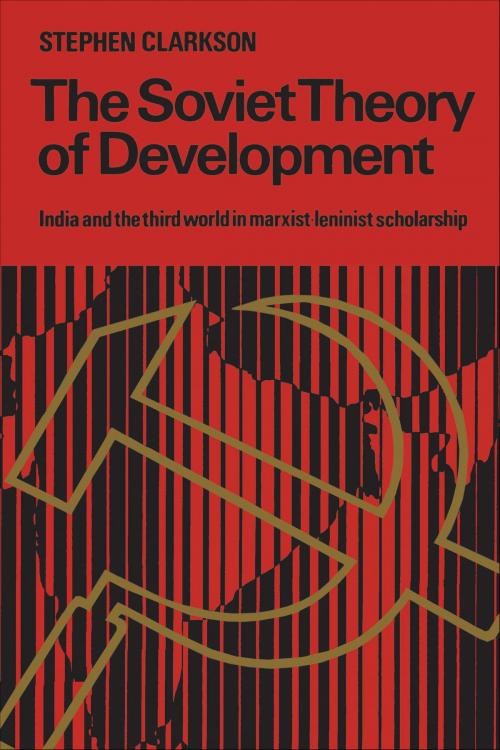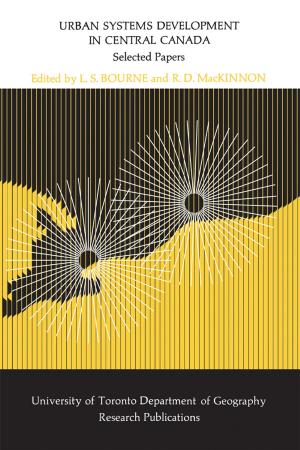The Soviet Theory of Development
India and the Third World in Marxist-Leninist Scholarship
Nonfiction, Social & Cultural Studies, Political Science, Politics, Economic Conditions, Government, Communism & Socialism, International| Author: | Stephen Clarkson | ISBN: | 9781442654815 |
| Publisher: | University of Toronto Press, Scholarly Publishing Division | Publication: | December 15, 1978 |
| Imprint: | Language: | English |
| Author: | Stephen Clarkson |
| ISBN: | 9781442654815 |
| Publisher: | University of Toronto Press, Scholarly Publishing Division |
| Publication: | December 15, 1978 |
| Imprint: | |
| Language: | English |
Until now the innumerable and widely distributed Soviet writings on the third world haven been scrutinized for the clues they contain on the Kremlin's aid, trade, and foreign policies, on Soviet strategies for local communist parties, and even on shifts in the Sino-Soviet Relationship. But they have rarely been analysed in their own terms and for what they are – the application of marxist-leninist theory by Soviet scholars to the problems of Asia, Africa, and Latin America. Based on research in Paris, New York, the Soviet Union, and India, this book provides a long needed insight into how Soviet thinkers understand such crucial problems in development as planning in mixed economies, foreign aid from socialist and capitalist donors, agrarian reform, and the class struggle.
A concerned observer of Soviet development theory for some fifteen years, Stephen Clarkson is neither hostile nor uncritical. He argues that western students and third world policy-makers alike have a good deal to learn from marxist-leninist political economy because it presents an integrated approach to understanding the dilemmas of underdevelopment. Although Soviet scholarship benefits from some important theoretical advantages, it also suffers, in Clarkson's view, from severe intellectual handicaps. The book examines the Soviet analysis of third world development as a whole, drawing particularly on the most extensive and sophisticated school of interpretation, the Russian writings on India.
This book makes an important contribution to Soviet and third world studies by offering the reader a guide to the publications on development, a complex and evolving aspect of the Soviet view of the world.
Until now the innumerable and widely distributed Soviet writings on the third world haven been scrutinized for the clues they contain on the Kremlin's aid, trade, and foreign policies, on Soviet strategies for local communist parties, and even on shifts in the Sino-Soviet Relationship. But they have rarely been analysed in their own terms and for what they are – the application of marxist-leninist theory by Soviet scholars to the problems of Asia, Africa, and Latin America. Based on research in Paris, New York, the Soviet Union, and India, this book provides a long needed insight into how Soviet thinkers understand such crucial problems in development as planning in mixed economies, foreign aid from socialist and capitalist donors, agrarian reform, and the class struggle.
A concerned observer of Soviet development theory for some fifteen years, Stephen Clarkson is neither hostile nor uncritical. He argues that western students and third world policy-makers alike have a good deal to learn from marxist-leninist political economy because it presents an integrated approach to understanding the dilemmas of underdevelopment. Although Soviet scholarship benefits from some important theoretical advantages, it also suffers, in Clarkson's view, from severe intellectual handicaps. The book examines the Soviet analysis of third world development as a whole, drawing particularly on the most extensive and sophisticated school of interpretation, the Russian writings on India.
This book makes an important contribution to Soviet and third world studies by offering the reader a guide to the publications on development, a complex and evolving aspect of the Soviet view of the world.















